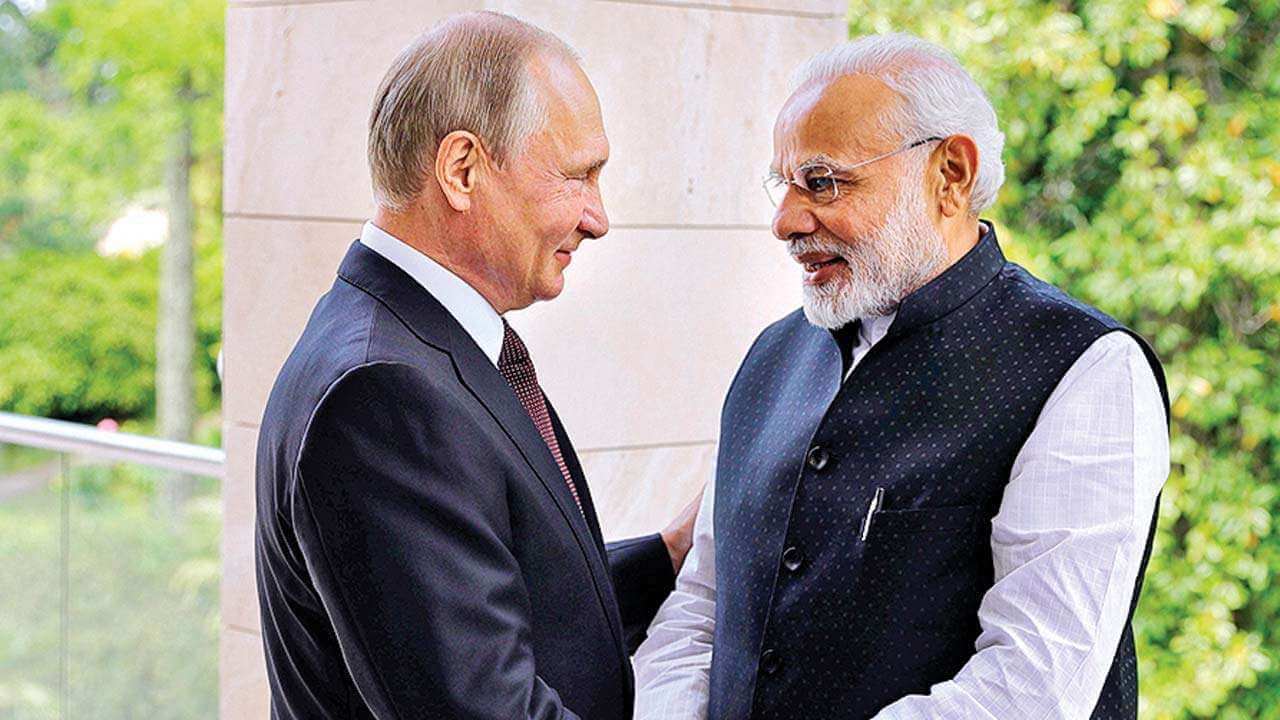India and Russia have cancelled the “India Russia Annual Summit” for the first time in twenty years. This forum has been an annual occurrence since both sides signed the “Declaration on the India-Russia Strategic Partnership” in 2000. In 2010, India and Russia’s bilateral ties were upgraded to “Special and Privileged Strategic Partnership.” The annual summit is considered as the “highest institutionalised dialogue mechanism” in their partnership. The 20th Annual Summit was held in 2019, during which Prime Minister Narendra Modi met with Russian President Vladimir Putin in Vladivostok.
Reacting to these developments, Rahul Gandhi, the political leader from India’s main opposition party, the Indian National Congress, said, “Russia is a very important friend of India. Damaging our traditional relationships is short-sighted and dangerous for our future.” In response, the Foreign Ministry spokesperson, Anurag Srivastava, called Gandhi’s comments “false and misleading.” He said that the decision to postpone the summit was taken in light of the COVID-19 pandemic and was mutually agreed to by both countries. Concurring with the Indian government’s explanation, the Russian ambassador to India, too, confirmed this, adding that both sides were committed to conducting the summit on a future date.
However, these developments come soon after Russia expressed its concern about India’s pro-United States (US) stand, specifically its participation in the “Quad” and the Indo-Pacific initiative. Earlier this month, Sergey Lavrov, Russia’s Foreign Minister, said, “India is currently an object of the Western countries’ persistent, aggressive and devious policy as they are trying to engage it in anti-China games by promoting Indo-Pacific strategies, the so-called Quad while at the same time the West is attempting to undermine our close partnership and privileged relations with India. This is the goal of the US’ very tough pressure on New Delhi in the MTC [Military and Technical Cooperation] area.” Responding to this statement, Anurag Srivastava reiterated that its foreign policy was independent and based on issues that concern its national interest. He added that India’s relations with Russia “stand on their own merits.
Russia has previously criticised the Indo-Pacific initiative for targeting China. In January, Sergey Lavrov said that the collaboration was aimed at creating unrest amongst the existing regional initiatives, such as the ASEAN or BRICS, which already advocate a “culture of dialogue”. Further, Russia’s ambassador to India, Nikolay Kudashev also raised concern about the “divisiveness” of the initiative and warned of its “revisionist agenda.” He said, “We are concerned, apprehensive, not in favour of the western desire in Indo-Pacific strategies because they need to negate the dialogue structure present in this region”.
Responding to the criticism, the US strongly came out in support of the regional collaboration. The US’s Deputy National Security Adviser, Matthew Pottinger, criticised Sergey Lavrov’s statement against the Indo-Pacific initiative and said that the partnership was primarily focussed on reinstating the rule of law to protect the “sanctity of each nation’s sovereignty.” He said, “So, it is free and open, does not exclude any nation, but does ask each nation to respect and promote those principles that we hold in common.” Both US and India have maintained that the initiative was a “principled vision” and did not intend to exclude any country.
India, Russia Cancel Annual Summit, India Cites Covid Pandemic as Justification
For the first time in two decades, India and Russia have cancelled the "India-Russia Annual Summit" because of the "COVID pandemic."
December 24, 2020

SOURCE: DNA
